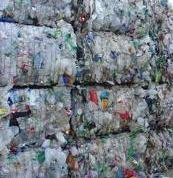
The UK government sponsors an organization that tries to find synergies among different industries. Looking for a market for waste products or by-product of the production of one company or an industry. Compared with carbon offsetting, currently around 14 euro/ton symbiosis typically cost less then 1 euro/kg and promotes resource re-use as well as reduces waste.
Some examples;
John Baarda, a Yorkshire tomato grower, has expanded rapidly because of the fruitful working relationship with Terra Nitrogen, a global nitrogen producer, by recovering and reusing the nitrogen’s company’s steam heat and 12,500 tons of its carbon dioxide. Baarda pumps the carbon oxide in the greenhouses to boost plant growth and heats it with the steamheat. Cultivating 300,000 tomato plants a year. Nitrogen is able to reduce its carbon footprint.
AJ & RG Barber, famous for its farmhouse cheddar, initially got involved with NISP through one of its synergy workshops where it was looking for a reuse solution for its wooden waste pallets. However, it soon emerged that the wooden boxes used to age the farmhouse cheddar were a more problematic material and so once a processor had been identified for the wooden pallets, NISP began approaching wood recycling firms to assess the opportunities for diverting the old cheese boxes from landfill. Mendip Woodshavings was able to take the waste and blend it with other material ready for reuse.
Lafarge Roofing generate tile waste through their production processes at one of their site. This was being sent to landfill until NISP facilitated a meeting between Jack Moody Ltd and Akristos who work closely with Lafarge Roofing. As a result of this meeting Jack Moody Ltd were made aware of the availability of this material and identified it as an alternative to virgin aggregate.
A small family run printing firm in Corbridge has been able to divert three quarters of its waste from landfill. Jack Robinson & Son who are general litho printers had been disposing of bin loads of printing off cuts, the local council were unable to offer a paper collection service at the site. A local paper mill, Fourstones, who agreed to take the off cuts. Because of problems regarding access at the printers, it was agreed that they deliver the waste paper direct to the paper mill to ensure the projects feasibility. This has enabled Jack Robinson & Son to directly recycle 75% of its waste.

Comments by our Users
Be the first to write a comment for this item.